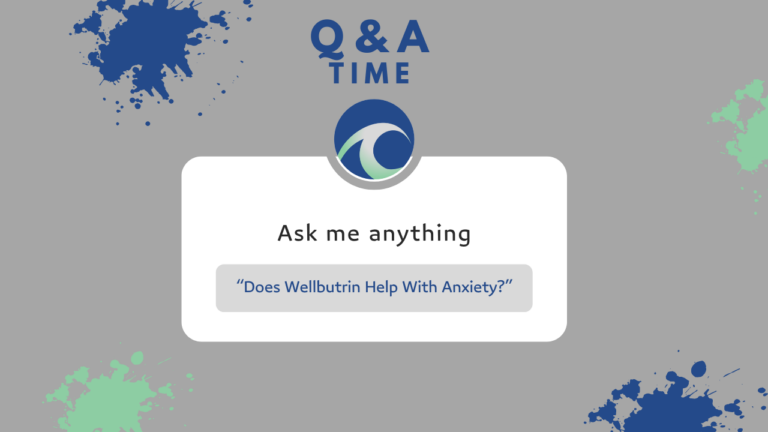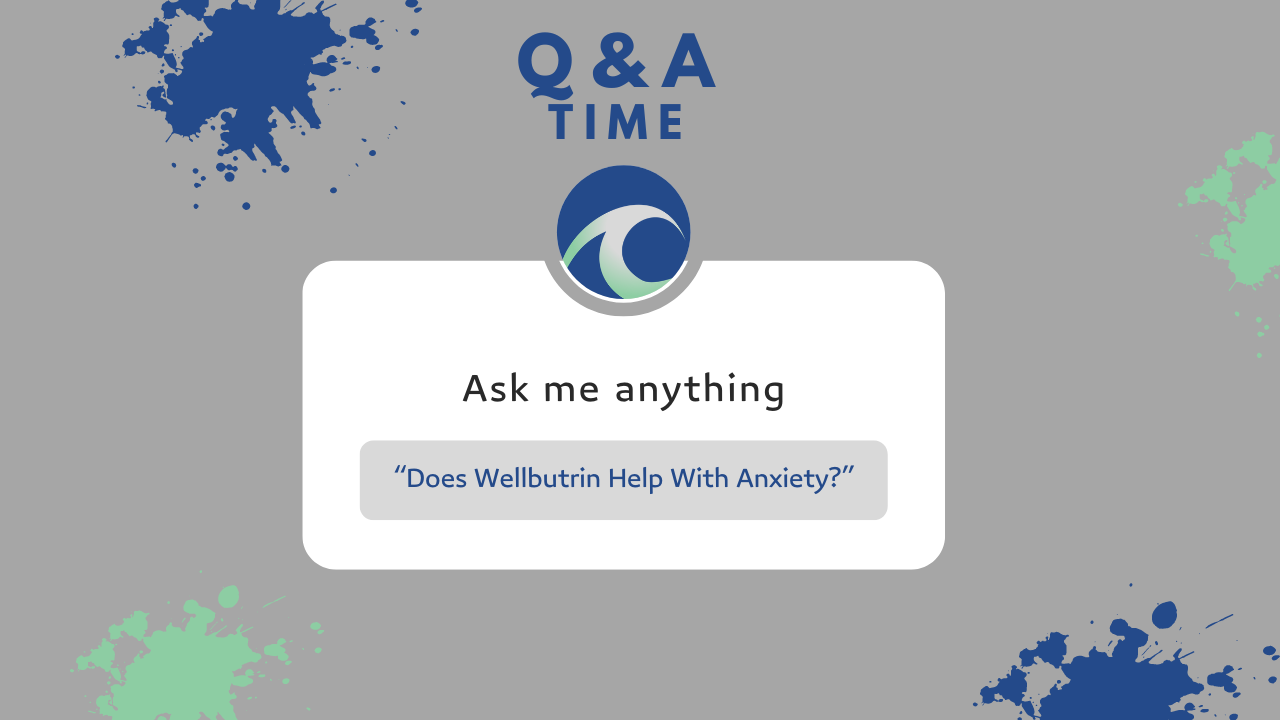
Does Wellbutrin Help With Anxiety? A Comprehensive Review of the Evidence
Wellbutrin is a medication that is commonly prescribed for depression, but it is sometimes used to treat anxiety as well. Anxiety disorders are the most common mental health disorders in the United States, affecting millions of people each year. While there are many different types of medications that can be used to treat anxiety, Wellbutrin is one that is often recommended by doctors.
The question of whether Wellbutrin helps with anxiety is a complex one. Some studies have suggested that the medication can be effective in reducing symptoms of anxiety, while others have found no significant benefit. Additionally, there are different types of anxiety disorders, and the effectiveness of Wellbutrin may vary depending on the specific type of anxiety that a person is experiencing. Despite these uncertainties, many doctors continue to prescribe Wellbutrin for anxiety, and some patients report that it has been helpful for them.
Understanding Anxiety and Wellbutrin
What Is Anxiety?
Anxiety is a common mental health disorder that affects millions of people worldwide. It is characterized by excessive worry, fear, and nervousness that can interfere with daily activities. Anxiety can manifest in different forms, including generalized anxiety disorder, panic disorder, social anxiety disorder, and specific phobias.
Overview of Wellbutrin
Wellbutrin is a medication that is commonly used to treat depression, but it can also be used to help manage anxiety. It belongs to a class of drugs known as atypical antidepressants, which work by altering the balance of certain chemicals in the brain.
Mechanism of Action
Wellbutrin works by increasing the levels of dopamine and norepinephrine in the brain. These chemicals are neurotransmitters that are involved in regulating mood, motivation, and attention. By increasing the levels of these chemicals, Wellbutrin can help improve mood and reduce anxiety symptoms.
It is important to note that while Wellbutrin can be effective in treating anxiety, it is not a cure-all solution. It is best used in combination with other therapies, such as cognitive-behavioral therapy or relaxation techniques, to help manage anxiety symptoms effectively.
Overall, Wellbutrin can be a useful medication for individuals who are struggling with anxiety. However, it is important to speak with a healthcare professional before starting any new medication to ensure that it is safe and appropriate for your specific needs.
Efficacy of Wellbutrin for Anxiety
Clinical Studies
Several clinical studies have investigated the efficacy of Wellbutrin for the treatment of anxiety. A randomized, double-blind, placebo-controlled study by Davidson et al. (2005) found that Wellbutrin was significantly more effective than placebo in reducing anxiety symptoms in patients with generalized anxiety disorder. The study also reported that Wellbutrin had a favorable safety profile and was well-tolerated by patients.
Another study by Hidalgo et al. (2007) compared the efficacy of Wellbutrin to that of sertraline, a selective serotonin reuptake inhibitor (SSRI), in patients with major depressive disorder and comorbid anxiety symptoms. The study found that both Wellbutrin and sertraline were effective in reducing anxiety symptoms, but Wellbutrin was associated with fewer side effects.
Wellbutrin vs. Other Antidepressants
Wellbutrin is classified as an atypical antidepressant and works by increasing the levels of dopamine and norepinephrine in the brain. This mechanism of action is different from that of SSRIs, which work primarily by increasing levels of serotonin in the brain.
Several studies have compared the efficacy of Wellbutrin to that of other antidepressants, including SSRIs, for the treatment of anxiety. A meta-analysis by Cipriani et al. (2018) found that Wellbutrin was equally effective as SSRIs in reducing anxiety symptoms in patients with depression and anxiety. However, the study also reported that SSRIs were associated with fewer side effects than Wellbutrin.
Overall, the available evidence suggests that Wellbutrin may be an effective option for the treatment of anxiety, particularly in patients with comorbid depression. However, more research is needed to fully understand the efficacy and safety of Wellbutrin for anxiety and to compare it to other treatment options.
Usage and Considerations
Dosage and Administration
Wellbutrin is available in immediate-release and extended-release formulations. The dosage and administration of Wellbutrin depend on the patient’s medical condition and response to treatment. The initial dose of Wellbutrin is usually 150 mg per day, given as a single dose in the morning. The dose may be increased to 300 mg per day after several days of treatment. The maximum recommended dose is 450 mg per day.
Potential Side Effects
Like all medications, Wellbutrin may cause side effects. The most common side effects of Wellbutrin include dry mouth, headache, nausea, vomiting, constipation, dizziness, and insomnia. These side effects are usually mild and go away on their own after a few days or weeks of treatment. However, some patients may experience more serious side effects, such as seizures, hallucinations, and suicidal thoughts. Patients should contact their doctor immediately if they experience any of these side effects.
Precautions and Contraindications
Before taking Wellbutrin, patients should inform their doctor about their medical history, including any history of seizures, eating disorders, or liver or kidney disease. Wellbutrin should not be taken by patients who have a history of seizures or who are currently taking other medications that lower the seizure threshold. Wellbutrin should also not be taken by patients who have a history of anorexia or bulimia, as it may exacerbate these conditions. Pregnant or nursing women should consult their doctor before taking Wellbutrin.
Patient Experiences and Perspectives
Patients who have taken Wellbutrin for anxiety have reported mixed experiences and perspectives. Some patients have found Wellbutrin to be effective in reducing their anxiety symptoms, while others have not noticed a significant improvement.
One patient reported that they experienced a reduction in their anxiety symptoms within the first week of taking Wellbutrin. They noted feeling more focused and less overwhelmed by their daily tasks. Another patient reported that they did not notice any significant changes in their anxiety levels while taking Wellbutrin, but did experience some side effects such as dry mouth and difficulty sleeping.
It is important to note that every individual’s experience with medication can vary, and it may take some time to find the right medication and dosage for each person. Patients should always consult with their healthcare provider before starting or stopping any medication for anxiety.
Overall, while some patients have found Wellbutrin to be helpful in managing their anxiety symptoms, it may not be the best option for everyone. It is important to work closely with a healthcare provider to determine the most appropriate treatment plan for each individual’s unique needs.
At Waterside Recovery Centers we pride ourselves on providing the top addiction treatment in Massachusetts. With a range of evidence-based, client-focused and individualized treatment offerings, we are able to provide the ideal support for those seeking recovery from substance addiction. Please feel free to reach out to our help line at anytime.
(866)671-8620





